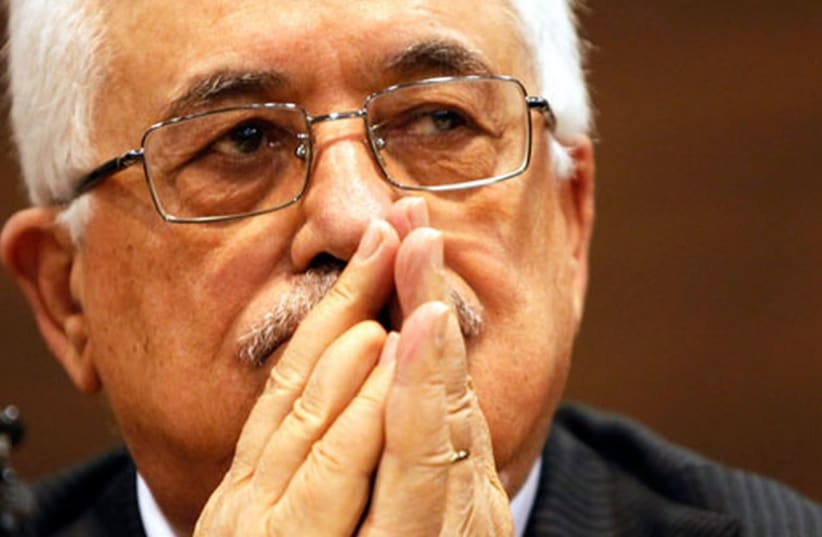See the latest opinion pieces on our page
Ramallah’s refusal to accept tax revenue collected on its behalf by Israel is a cogent case in point. Israel froze these funds in December after the PA decided to join the International Criminal Court in The Hague and thereby instigate proceedings against Israel for alleged war crimes.Israel had failed to dissuade the PA, a supposed peace partner, from carrying out its cynical ploy. The revenue freeze was imposed to demonstrate that adversarial provocations come at a price.But, as on previous occasions, Israeli punitive reactions are short-lived – no matter how justified. This time, too, the government relented following pressure from Washington and handed over to Ramallah NIS 1.37 billion.But Israel held back a symbolic NIS 160,000 to defray a fraction of the PA’s NIS 2b. debt to the Israel Electric Corporation. The PA is also in massive arrears to Mekorot for water piped to it and to Israeli hospitals for unpaid medical bills.According to PA President Mahmoud Abbas’s arithmetic, however, this token deduction amounts to “a full third of the total.” Therefore, he said, he refuses to accept any of the money and is prepared to take Israel to the ICC over the matter. The Palestinian media, which Abbas controls, is already rife with threats that “Israel’s thieving would be the first war crime on which it would be tried internationally.”It might be absurd to presume that collecting a small portion of enormous outstanding utility bills can be portrayed as a war crime. But what holds true for other nations is not so in Israel’s case.While it is increasingly trendy overseas to condemn Israel on miscellaneous trumped-up charges – including apartheid, wholesale oppression, dispossession and much more in the same fallacious vein – few anywhere are aware that the supposedly downtrodden Palestinians essentially enjoy free electricity courtesy of average Israelis.It might make for fascinating legal high jinks if Abbas does press this matter at the ICC, after having brazenly racked up alarming debts and then gallingly waited quite content to have Israelis pick up his regime’s tab. It would be interesting to see if anti-Israel bias could move jurists abroad to actually rule that it is an inalienable Palestinian right not to pay any bills but to enjoy free electricity, as well as other utilities and services, at the direct expense of Israeli consumers.It is safe to assume that no such precedent exists in the annals of jurisprudence. Still, serial non-fulfillment of financial obligations by the Palestinians – in many spheres, not only vis-à-vis the IEC – has not dampened Ramallah’s chutzpah.To be sure, this is not the first time in which Israel announces it will deduct money to pay debts from PA revenues, but time and again international pressure quickly causes the government to backtrack. It would be no surprise if this episode is similarly concluded.Nonetheless, the government cannot keep playing nice and avoid damaging our international image at a cost to the Israeli economy. The PA’s unbridled fiscal delinquency cannot be subsidized by Israeli citizens, even if the upshot would be bad press and the usual mud-slinging abroad.Israel clearly possesses a range of options to make sure that its resources and population are not unconscionably exploited, especially by forces that lose no opportunity to ingrain enmity to the Jewish state. To then expect that state to keep bankrolling the PA is akin to extortion.Israel must show the PA that it will not be cowed by shakedowns. Attempted blackmail will only intensify unless Israel indicates that it will not accept losses and inflict pain on its own citizens just to escape yet another demonization drive.The more Israel appears to fear slander, the more potent the weapon of slander becomes in the ongoing anti-Israel offensive.
The PA’s audacity
Rancor sometimes produces useless gestures of self-harm that are described as “cutting off your nose to spite your face.
